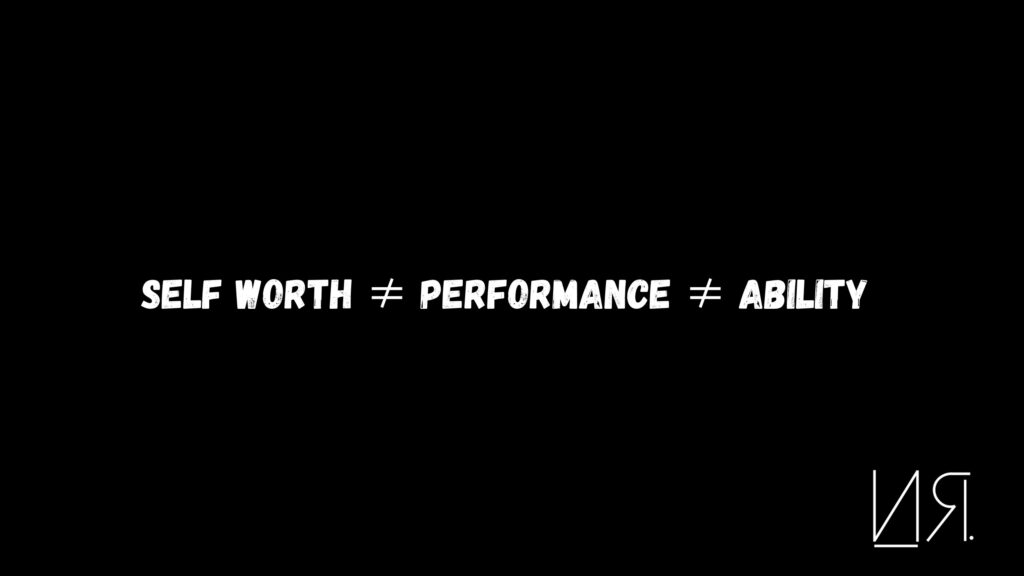“You are A1 material”
That’s what my mom told me, standing on the stairwell landing at home in Ikeja, Lagos in 1998.
It was a humid morning during my summer holidays – on my way to JSS 3 (9th grade).
I was 11 years old and my main priorities had become playing football in school and coming back home to play basketball.
For two years straight, my grades slid down the slippery slope like a rainy day in San Francisco.
My dad was baffled.
Every term I brought my report card home was followed by a 2-hour lecture where he reminded me about how privileged I was and how he “worked to pay his own school fees at my age.”
My mom, on the other hand, did something different.
That morning, on her way to the office, as I escorted her to her car, she stopped on the landing of the stairs and looked me straight in the eyes and said “Nifemi, I’m not quite sure what’s going on but I know that you are A1 material”
She said it so firmly that I actually believed it.
Those words changed my trajectory.
With gradual effort, my grades improved drastically the next term – creating a virtuous cycle. The positive affirmation led to a reinforcing belief that I was in charge of my effort and intelligence.
I’m so glad for those words and I still remember them today. “Thanks mama.”
I didn’t realize hearing them was part of the foundation to prepare for life’s challenges and understand self-worth.
What’s your narrative?
A lot of us are not built to believe in ourselves.
We internalize doubts from childhood that have been imposed on us – stopping us from being our true selves.
These subconscious thoughts, which we carry into adulthood, lead to self doubt and it shows up through action (or inaction) in our daily lives.
You want to achieve something but you make the active choice to procrastinate. Not realizing the internal forces you are battling, you begin with the “beat yourself up” narrative:
“Why can’t I achieve the things I said I want to?”
“Am I not good enough?”
“How will it look if I don’t deliver?”
Another day, the polarity switches and you lean into your deference narrative:
“I don’t struggle with doubt. In fact I am supremely confident in myself.”
“I have achieved a lot of things in my life. Self-doubt is for non-achievers.”
“If anything holds me back, it’s the world, its games, and the systems rigged against me”
Up and down, you ride these cycles. Emotional waves that leave you stuck – miles away from your dreams.
Self-sabotage becomes the name of the game.
We become our own biggest enemies – deferring our dreams because of a lack of awareness of our internalized doubts and a growing fear of failure.
Unknowingly, when you lead with self-doubt, procrastinate, or self-sabotage, your unconscious thoughts have taken reign.
These hidden patterns and belief systems restrain us or as human behavior expert, Peter Sage, put it: “without knowledge of this, you are like an ant marching north on the back of an elephant heading south”
Are there thoughts and beliefs that you are unaware of that are pulling you in the opposite direction of where you want to be headed?
Is your mind making you do a moonwalk in the wrong direction?
If you don’t know, you might just be losing the ultimate game of all – Self-mastery.
5 Ways to master yourself to get over yourself:
Self-mastery is a life-long process.
Along the way it helps you build genuine and unshatterable self-confidence.
When you overcome self doubt, you have better day-to-day experiences. It allows you to show up as a full person with human dignity.
It helps reinforce a true sense of identity, prepares you for the uncertainty that life always throws your way, and keps procrastination at bay.
“One can have no smaller or greater mastery than mastery of oneself.”
~ Leonardo da Vinci
Here are the 5 ways to get you on your way:
1) Stop consuming bad stuff
“Environment trumps will”
~ Peter Sager, Entrepreneur & Human Behavior Expert
I’m a hardcore hip-hop fan, that’s what I grew up on. How did I start reciting classic rock songs in my mid-twenties?
That’s what sitting in a control room for 12 – 16 hours a day at a manufacturing plant in the middle of Indiana will do to you.
The operators at this plant only listened to classic rock. Before I knew it I was tapping my feet and singing AC/DC’s “TNT…I’m dynamite…TNT…I’m a power load.”
We are programmable by nature. Environment will win most times over your own personal will. Your behavior and choices become shaped by the environment you’re in.
Aside from work, there are two main sources of what drives your exposure – mainstream media and your peer groups (both in real life and online).
The mainstream media is there to keep you…There!
Watching their screens so they can rack up their ad revenue. They know how to get you hooked by priming up the amygdala – the fear region – in your brain.
Your environment shapes you so take an active role in choosing it.
Switch up your environment and negative external stimuli that reinforces fear and diminishes the belief you have in yourself.
2) Start consuming good stuff
“People will never rise up beyond the opinions of themselves”
Whenever I sit down to write, my heart beats faster. I start to question whether I can do it again. “Can I write something cohesive?”
With each new sentence, my inner critic that sits on my shoulder peeks over and says:
“Bro, are you really going to write that? OK! Suit yourself”
“Eeyyyy…I don’t know about that sentence”
“Do you even know how to spell?”
I am in the pursuit of training myself to recognize that critic, acknowledge it, and move on.
We are our biggest critics.
This inner voice is built over years on what we tell ourselves and the sum average of the voices of the people we spend the most time with.
You are bound to confirm, how about you confirm with like-minded people.
Be around people that align with your values so your mind only consumes the good stuff.
Remember, the main voice you hear is yours. Talk to yourself in a positive way.
In the mirror, before you go to bed, train your mind to recognize your voice saying good things to and about yourself.
Start programming yourself with active thoughts that boost your confidence and surround yourself with people that uplift your being.
3) Parse out what’s in your mind
You might be too deep in your own wilderness to know you’re thirsty.
“Nifemi, you need to stop working so hard for your business. It’s time to let your business start working for you”
That’s what a business mentor told me a year after the pandemic hit.
Until then I had been ‘hustling’ for four years in my business with only decent and inconsistent growth.
I had taken up the persona that…
hustling, grinding,
suffering and not smiling
was the path every entrepreneur had to go through.
I was lost in my own sauce. The world literally had to come to a halt for me to see the sun again but only with the help of a mentor – a more seasoned entrepreneur.
With a few tips, he spotlighted how I was getting in my own way. These changes ‘un-stuck’ the newer and improved version of my business.
Hidden cobwebs in your mind can be holding you back. You need a light to find and start sweeping them out.
This light can be provided by a coach, mentor, or trained therapist that can identify the unconscious biases in your mind that causes self-sabotaging behavior.
Seek out a trusted outsider that can help you identify the blind spots of how you might be getting in your own way.
Develop a practice to overcome these mental blocks.
4) Develop a growth mindset
The difference between the fixed mindset and growth mindset is two words – “not yet”
The thing that stops a lot of us from reaching our potential is the rigidity of our minds.
Most of us are trained to have a fixed mindset, when what we need is a growth mindset.

Everyone has the ability to develop a growth mindset.
First, you have to understand that there is science behind this. Your brain can be molded to learn new things. It creates new neural pathways when you learn and grow.
Second, know that growth mainly comes through deliberate practice.
Third, listen in on your fixed mindset’s voice.
When next it says “I can’t do that.”
Respond with your growth mindset: “Not Yet!”
Become a life-long learner and develop a growth mindset.
Boost your belief in yourself by craving the imperfect process of growing over the praise of an illusive perfect outcome.
5) Detach your ability from your self-worth
YOU are not what you do.
Have you ever found yourself squeezing a task into just a few moments before its due?
When you finally get it done, you think “that wasn’t that bad afterall. I should have just done it four days ago when I got it.”
This happens to a lot of us.
Did you know your procrastination was just a protection strategy?
We are driven by an innate need to protect our sense of self. According to Self-worth theory, we want to be seen as capable, able, and competent.
Anything that shatters that is a threat.
We equate our self-worth to our ability to achieve – tying it directly to our performance.
When we procrastinate, we protect ourselves because we think our worth is equal to our ability to perform.
Although we want to succeed, we also have a very high fear of failure and of damaging our rigid concept of self.
When you procrastinate, you intentionally give yourself little time to prepare. If you fail you tell yourself you didn’t prepare enough.
However, when you succeed, you tap yourself on the back and call yourself a high-performing genius that loves to work under pressure.
Break the “my performance = my ability = my worth” equation.
Your ability is not solely based on your performance level and more importantly, your self worth is not based on your ability.
You are who you are because of who you are and not what you do or achieve.
Final Thoughts
Self doubt is normal.
It’s actually there to protect you and help you survive.
When overdone though, it leads to a sense of “feeling stuck”.
Unstick yourself by reducing your affinity to negative environmental cues and replacing them with positive inputs that move you towards a future self you’ll be proud of.
Develop a growth mindset and find a trusted external expert that can help you sort through unconscious biases that drive self-sabotaging narrative and behavior.
Most importantly, break the toxic “performance-self worth” cycle that makes you believe that you are what you do.
Last thing, I just want to let you know that:
You’ve been A1 since Day 1.
Now make it your No.1 job to believe in yourself – every single day.
Yours truly,
Nifemi



